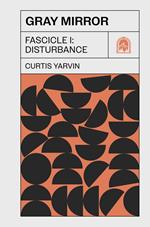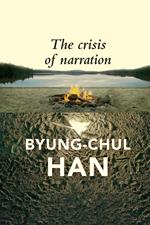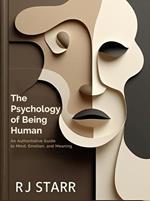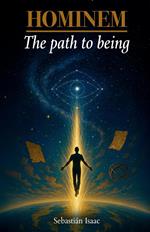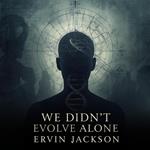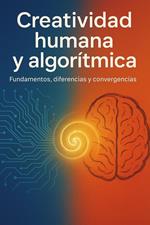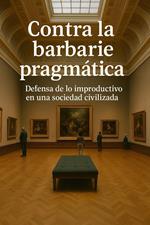-
The Craftsman
Venditore: Feltrinelli9,49 € -
The Denial of Death
Venditore: Feltrinelli18,03 € -
Gray Mirror
Venditore: FeltrinelliPassage Press, 2026Ebook in lingua straniera | Politics & PhilosophyDisponibile dal 28 luglio 202611,01 € -
The Score
Venditore: Feltrinelli14,99 € -
The Crisis of Narration
Venditore: Feltrinelli14,99 € -
Sobre Dios
Venditore: Feltrinelli9,99 € -
Le Rêve de d'Alembert
Venditore: Feltrinelli2,99 € -
Qui a peur du genre ?
Venditore: Feltrinelli15,99 € -
The Psychology of Being Human: An Authoritative Guide to Mind, Emotion, and Meaning
Venditore: Feltrinelli8,99 € -
Apply-Degger: Heidegger’s Thinking in ‘Being and Time’ Explained
Venditore: FeltrinelliNew York Review Books, 2026Ebook in lingua straniera | Politics & PhilosophyDisponibile dal 8 settembre 202617,88 € -
HOMINEM: The Path to Being
Venditore: Feltrinelli7,99 € -
Confessions
Venditore: Feltrinelli8,99 € -
Capitalismo, biología e historia
Venditore: Feltrinelli0,99 € -
We Didn't Evolve Alone
Venditore: Feltrinelli5,49 € -
Creatividad humana y algorítmica
Venditore: Feltrinelli0,99 € -
The Still Runway
Venditore: Feltrinelli4,49 € -
La Mente Humana no Existe. Una mirada Emergentista desde los múltiples cerebros que tiene el cuerpo Humano. Porque Somos lo que Somos.
Venditore: Feltrinelli4,49 € -
Rufus
Venditore: Feltrinelli3,49 € -
Stop Trying to Be Happy
Venditore: Feltrinelli13,99 € -
CE QUE LA BETE NE FERAIT JAMAIS
Venditore: Feltrinelli3,49 € -
I Have Decided Not to Explain Myself
Venditore: Feltrinelli1,99 € -
The Search for The Ultimate principle
Venditore: Feltrinelli9,49 € -
Break the Illusion. Part I: Conversation Between the Antichrist and Artificial Intelligence (Short Version)
Venditore: Feltrinelli11,49 € -
Contra la barbarie pragmática
Venditore: Feltrinelli0,99 € -
Started Separate Finished Together
Venditore: Feltrinelli3,49 €
Informazioni sull’ordinamento
Vengono mostrati per primi i prodotti che rispondono a questi criteri: rilevanza rispetto alla ricerca, dati di venduto, disponibilità, data di pubblicazione, tipologia di prodotto, personalizzazione ad eccezione delle sponsorizzazioni.


